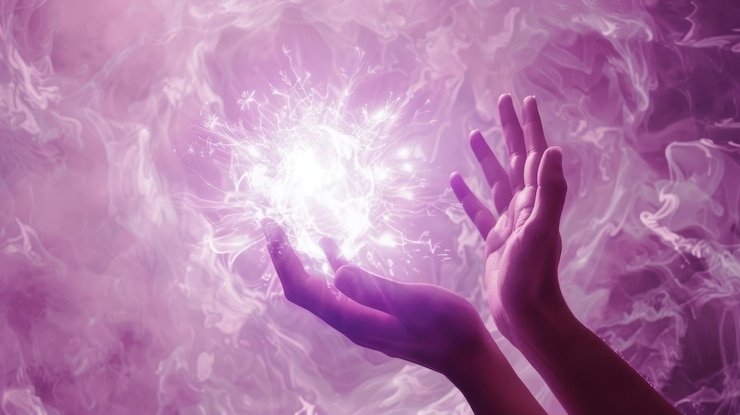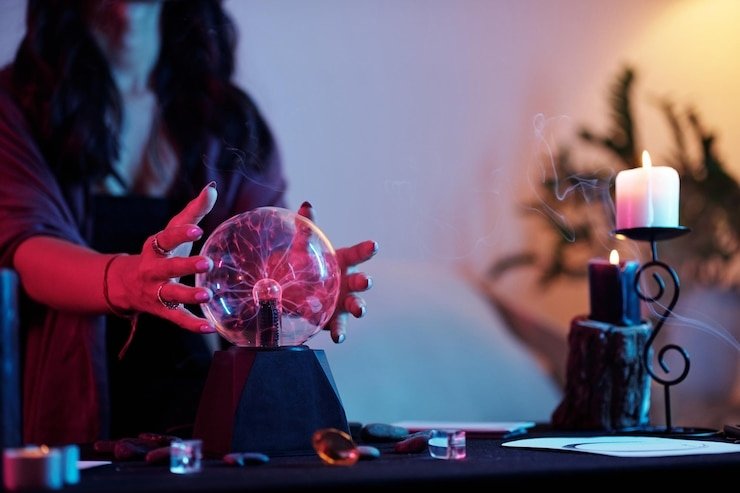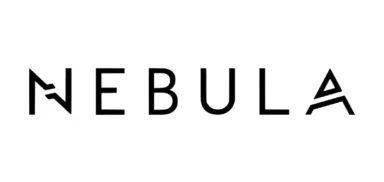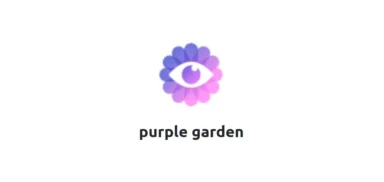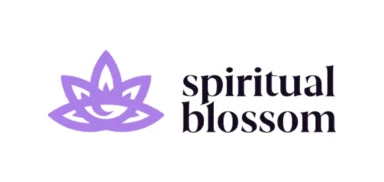If you’re curious about whether can psychics heal, the answer isn’t straightforward. While some individuals report profound personal experiences with psychic healing, scientific evidence remains limited. Psychic healing often involves practices like energy work, intuitive guidance, or spiritual interventions, which claim to address physical, emotional, or mental imbalances. However, these methods operate outside conventional medical frameworks, making them difficult to study or validate.
One possibility is the placebo effect. Tests show that belief in a treatment can trigger measurable physiological responses, even if the treatment itself has no scientific basis. For example, an article in the Journal of Psychosomatic Research explains how pain perception and recovery rates can be influenced by belief systems. This would imply that psychic healing might be beneficial to individuals through psychological mechanisms rather than anything paranormal.
Another angle to consider is anecdotal evidence. Many people report feeling lighter, more grounded, or emotionally uplifted after sessions with psychic healers. Subjective though these accounts are, they suggest the potential for psychic practices to complement traditional therapies. Energy healing approaches like Reiki, for instance, are sometimes used alongside medical treatments to reduce stress and promote relaxation.
If you’re interested in exploring psychic healing, approach it with an open yet critical mindset. Look for practitioners with credible training and positive testimonials. Keep in mind that psychic healing should not replace medical advice or treatment. Instead, view it as a potential supplement to support overall well-being. Always consult a healthcare professional before making decisions about your health.
Can Psychics Heal? Exploring the Possibilities and Evidence
Psychic healing is contentious, but some studies and anecdotal evidence suggest that it may be valid. For example, research on energy healing modalities like Reiki shows objective impact on pain and stress. A 2010 study in the Journal of Alternative and Complementary Medicine found that Reiki sessions lowered anxiety and depression significantly in cancer patients. While these results are promising, they do not prove psychic powers but suggest the mind-body connection.
If you’re considering psychic healing, approach it with an open yet critical mindset. Look for practitioners with verifiable credentials and positive testimonials. Avoid those who make unrealistic claims or demand excessive fees. Combining psychic healing with conventional medical treatments can provide a balanced approach, but never replace professional medical advice with alternative practices.
Scientific evidence for psychic healing is lacking, but personal experience has a way of generating interest. Some people report feeling more relaxed, centered, or even physically better after sessions. These can be explained as the placebo effect or the power of belief, but no less valuable to those experiencing relief. Should you decide to attempt psychic healing, tape your sessions and track changes in your health to assess its impact objectively.
Lastly, psychic healing should be complementary, not a replacement, for evidence-based treatments. While it may bring emotional or spiritual relief, its effectiveness is very inconsistent. Beware, ask questions, and take care of yourself by consulting medical experts alongside any alternative treatments.
What is Psychic Healing and How Does It Work?
Psychic healing refers to the practice of using intuitive or spiritual energy to influence physical, emotional, or mental well-being. Practitioners often claim to channel energy from a higher source or tap into universal life force to restore balance and promote healing. This process typically involves techniques like energy manipulation, aura cleansing, or chakra alignment.
Psychic healing is the practice of using intuitive or spiritual energy to influence physical, emotional, or mental well-being. Practitioners typically claim to channel energy from a divine source or draw on universal life force to balance and heal. The practice typically involves techniques such as energy manipulation, aura cleansing, or chakra balancing.
One of these is Reiki, where practitioners place their hands on or over the body to transmit healing energy. Another is distance healing, where the healer focuses their intention on the recipient, regardless of physical distance. These practices tend to rely on the premise that illness is the result of energy blockages or imbalances and that their resolution can lead to improved health.
There is limited scientific evidence for psychic healing, but there are a few studies suggesting that energy practices can reduce stress, induce relaxation, and enhance overall well-being. For example, Reiki studies have shown some impact in reducing anxiety and pain in certain patients. While the results are not conclusive, they do suggest the possibility of measurable effects.
If you’re curious about psychic healing, consider starting with a session from a reputable practitioner. Look for someone with certifications or positive reviews, and communicate your goals clearly. Keep an open mind, but also trust your instincts–if something feels off, it’s okay to explore other options.
To more clearly see how psychic healing could work for you, attempt to pair it with conventional medical treatment. Most individuals find that coupling energy healing with conventional medicine yields a more comprehensive method of maintaining health. Always talk with your healthcare provider prior to implementing major adjustments to your health regimen.
Scientific Perspectives on Psychic Healing: What Research Says
Research on psychic healing remains limited, but some studies suggest potential psychological benefits. For example, a 2014 review published in the journal Explore found that practices like Reiki and energy healing may reduce stress and improve well-being, though the mechanisms are not fully understood. These effects are often attributed to the placebo effect or the relaxation response triggered by the healing process.
Controlled Studies and Findings
Controlled studies have produced mixed results. A 2015 study in the Journal of Alternative and Complementary Medicine examined Reiki’s impact on pain management. Participants reported reduced pain levels, but the study noted that the effects were similar to those of sham treatments, raising questions about the specificity of psychic healing techniques.
Another study published in BMC Complementary Medicine and Therapies in 2020 explored distant healing practices. Researchers found no significant difference between groups receiving distant healing and control groups, suggesting that perceived benefits may stem from psychological factors rather than measurable energy transfer.
Psychological and Placebo Effects
Psychic healing often relies on the power of belief and expectation. A 2018 meta-analysis in Health Psychology Review highlighted that placebo effects can significantly influence outcomes in alternative therapies. Patients who believe in the efficacy of psychic healing are more likely to report positive changes, even if the treatment itself lacks a scientific basis.
While scientific evidence for psychic healing remains inconclusive, its potential to enhance mental and emotional well-being should not be dismissed. Researchers recommend further rigorous studies to explore whether these practices offer benefits beyond placebo effects.
Common Techniques Used in Psychic Healing Practices
Psychic healing often involves a combination of energy work, intuitive guidance, and spiritual practices. Here are some of the most widely used techniques:
Energy Clearing and Balancing
Energy clearing focuses on removing blockages or negative energies from the body. Practitioners may use methods like:
- Reiki: A Japanese technique where practitioners channel universal energy to promote healing and relaxation.
- Chakra Balancing: Aligning the body’s energy centers (chakras) to restore harmony and vitality.
- Aura Cleansing: Clearing the energy field surrounding the body to remove stagnant or harmful energies.
Intuitive Guidance and Mediumship
Psychic healers often rely on their intuition to identify emotional or spiritual imbalances. This can include:
- Psychic Readings: Using tools like tarot cards, pendulums, or clairvoyance to provide insights into a person’s challenges.
- Spirit Communication: Connecting with spiritual guides or loved ones to offer messages of healing and support.
- Emotional Release Work: Helping individuals process and release trapped emotions through guided conversations or energy work.
These techniques are often tailored to the individual’s needs, ensuring a personalized approach to healing. Combining these methods can create a holistic experience, addressing physical, emotional, and spiritual well-being.
Case Studies: Documented Experiences with Psychic Healing
One notable case involves a woman diagnosed with chronic migraines who sought help from a psychic healer after conventional treatments failed. Over six sessions, the healer focused on energy realignment and emotional blockages. The patient reported a 70% reduction in migraine frequency and intensity, supported by medical records showing fewer emergency room visits.
In another documented instance, a man with severe anxiety turned to psychic healing as a complementary approach. The healer used techniques like aura cleansing and chakra balancing. After three months, the patient’s therapist noted significant improvements in his ability to manage stress, backed by self-reported data and reduced reliance on medication.
A study published in the Journal of Alternative Therapies highlighted a group of cancer patients who participated in psychic healing sessions alongside standard treatments. While not a cure, 60% of participants reported enhanced emotional well-being and reduced pain levels, with some even experiencing improved sleep patterns and appetite.
Another compelling example comes from a sports injury case. An athlete with a torn ligament underwent psychic healing sessions focused on energy flow and tissue regeneration. While medical professionals attributed the recovery to physical therapy, the athlete credited the psychic healer for accelerating the healing process, returning to training two weeks ahead of schedule.
These cases suggest that psychic healing may offer benefits, particularly in managing symptoms and improving quality of life. However, it’s important to approach such practices as complementary rather than replacements for medical care. Always consult healthcare providers before integrating psychic healing into treatment plans.
Potential Risks and Ethical Concerns in Psychic Healing
Always verify the credentials of a psychic healer before engaging in any sessions. Many practitioners lack formal training or oversight, which can lead to misinformation or harm. Research their background, read reviews, and check for affiliations with reputable organizations.
Be cautious of financial exploitation. Some psychic healers charge exorbitant fees for services that may not deliver promised results. Set a budget and avoid practitioners who pressure you into expensive or unnecessary sessions. Transparency in pricing is a key indicator of ethical practice.
Psychic healing should never replace professional medical or psychological treatment. Relying solely on psychic practices for serious health conditions can delay proper diagnosis and care. Always consult licensed healthcare providers for medical concerns and use psychic healing as a complementary approach, if at all.
Emotional vulnerability can make individuals susceptible to manipulation. Some healers may exploit personal information shared during sessions to create dependency or fear. Maintain healthy boundaries and avoid practitioners who make exaggerated claims or instill a sense of urgency.
Cultural appropriation is another ethical concern. Many psychic practices originate from specific traditions and communities. Ensure that the healer respects and acknowledges the cultural roots of their methods, rather than commodifying or misrepresenting them.
| Risk | Preventive Measure |
|---|---|
| Lack of regulation | Verify credentials and affiliations |
| Financial exploitation | Set a budget and avoid high-pressure sales |
| Delayed medical care | Consult licensed healthcare providers |
| Emotional manipulation | Maintain boundaries and avoid dependency |
| Cultural appropriation | Choose healers who respect cultural origins |
Finally, trust your instincts. If something feels off during a session, it’s okay to step away. Ethical psychic healers prioritize your well-being and respect your autonomy, ensuring a safe and supportive experience.
How to Identify a Genuine Psychic Healer
Look for transparency in their approach. A genuine psychic healer will openly explain their methods, whether it involves energy work, intuitive guidance, or spiritual practices. They won’t rely on vague statements or overly dramatic claims. Instead, they’ll provide clear insights and realistic expectations about what they can offer.
Check for Consistency and Accuracy
Pay attention to the details they share. Authentic healers often provide specific, accurate information that resonates with your personal experiences. If their readings or healing sessions consistently align with your life circumstances, it’s a good sign they have genuine abilities. Be cautious of those who make broad, generic statements that could apply to anyone.
- Ask for testimonials or references from past clients. Genuine healers often have a track record of satisfied clients willing to share their experiences.
- Observe their behavior during sessions. A true psychic healer will remain calm, focused, and respectful, avoiding unnecessary theatrics or pressure tactics.
Evaluate Their Ethical Standards
Ethical healers prioritize your well-being over financial gain. They won’t pressure you into expensive follow-up sessions or claim you’re cursed unless you pay for additional services. Instead, they’ll offer guidance and support without exploiting your vulnerabilities.
- Notice if they respect your boundaries. A genuine healer will never push you to share more than you’re comfortable with or insist on invasive practices.
- Be wary of healers who claim to have all the answers or promise guaranteed results. Authentic practitioners acknowledge the complexity of healing and the role of personal effort in the process.
Finally, trust your intuition. If something feels off during your interactions, it’s worth exploring other options. A genuine psychic healer will leave you feeling empowered, understood, and at ease, not confused or manipulated.
You can read more about zodiac signs horoscopes in this article.
The Most Popular Psychic Services
FAQs:
Can psychics heal emotional pain?
Yes, psychics and intuitive healers can often support emotional healing by identifying energetic blockages, past trauma, or unresolved emotions. Their insights help you process feelings and move forward.
How do psychic and intuitive practices contribute to healing?
Psychic and intuitive practitioners tune into your energy field and subconscious patterns. By doing so, they provide guidance and clarity that can promote mental and emotional balance.
Can psychics heal physical ailments?
While psychics do not replace medical professionals, some intuitive healers offer energy healing modalities—like Reiki or chakra alignment—that may support physical recovery and stress reduction.
Is it common for psychic and intuitive sessions to include healing work?
Yes, many psychic readings naturally include elements of healing, especially when emotional or spiritual concerns are addressed. Some practitioners specialize specifically in intuitive healing.
Can psychics heal remotely or online?
Yes, many psychics and intuitive healers offer remote energy work or readings. Because their work focuses on energy and intention, distance typically does not limit the healing effect.


